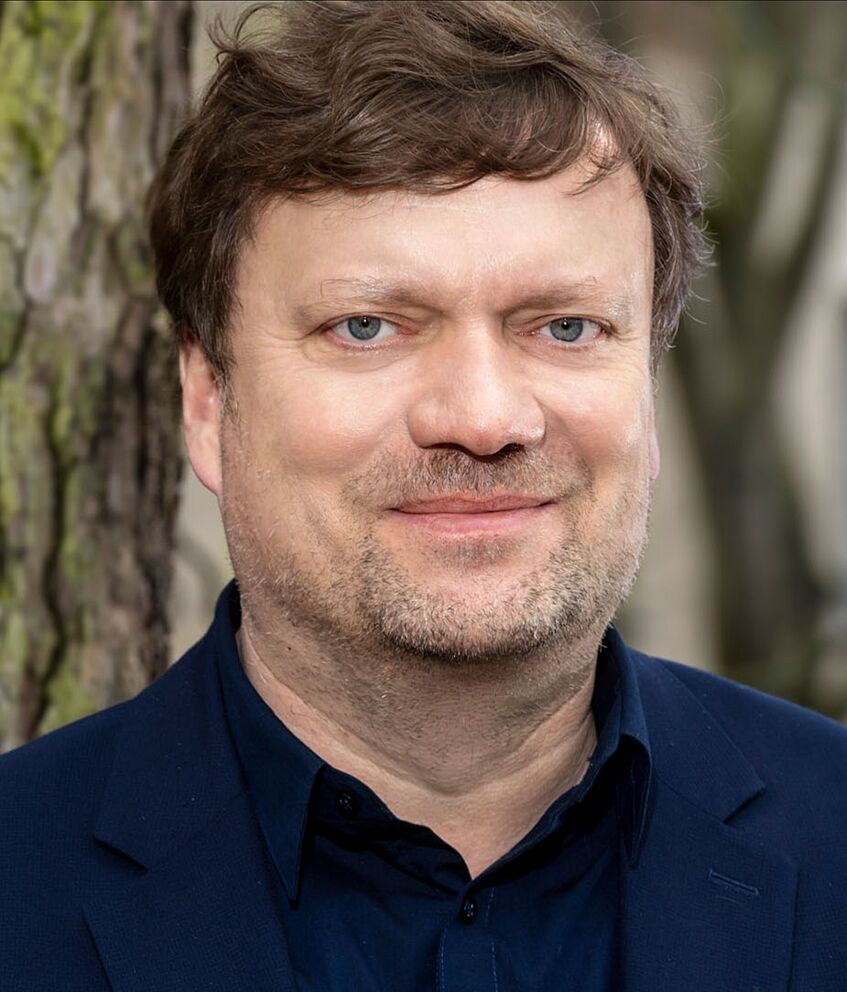Univ.-Prof. Dr. Grune Tilman

Copyright: David Aussenhofer/DIfE
Univ.-Prof. Dr. Grune Tilman
Scientific Career
since 05/2020
University Professor of Physiological Chemistry and Cellular Biochemistry, Faculty of Chemistry, University of Vienna
05/2020 - 08/2023
Head of the Institute of Physiological Chemistry, Faculty of Chemistry, University of Vienna
since 2014
Scientific Director of the German Institute of Human Nutrition (DIfE) Potsdam-Rehbrücke and Chair of the Department of Molecular Toxicology, DIfE/University of Potsdam, Germany
2010 – 2014
Chair of the Department of Nutritional Toxicology in the Institute of Nutrition, Friedrich Schiller University, Jena, Germany
2006 – 2010
Chair of the Department of Biofunctionality and Safety of Food in the Institute of Biological Chemistry and Nutrition, University of Hohenheim, Stuttgart, Germany
2003 – 2006
Head of the Free Radical Research Laboratory, Research Institute of Environmental Health, Heinrich Heine University Duesseldorf, Germany
2000 – 2003
Head of the Free Radical Research Division of the Neuroscience Research Centre of the Medical Faculty (Charité), Humboldt University Berlin, Germany
1994 – 2000
Head of the research division of the Clinics of Physical Medicine and Rehabilitation of the Medical Faculty (Charité), Humboldt University Berlin, Germany
1993 – 1994
Post-doctoral fellowship at the Institute of Molecular Biology and Biochemistry, Albany Medical College, Albany NY, USA
1992 – 1993
Research assistant at the Research Institute of Molecular Pharmacology Berlin, Germany
1987 – 1992
Research assistant at the Institute of Biochemistry of the Medical Faculty (Charité), Humboldt University Berlin, Germany
Education:
2013
Dr. h.c. University of Buenos Aires
1998
Habilitation (Lecturer of Biochemistry): Secondary antioxidative defense systems in mammalian cells – the removal of oxidation products as demonstrated by the degradation of the lipid peroxidation product 4-hydroxynonenal and the removal of oxidatively modified proteins
1993 – 1994
DFG research fellowship
1992
Graduation (MD): Nucleotide degradation and free radical damage during ischemia and reperfusion of the rat small intestine
Studies
1986 – 1987
Diploma level: Comparative analysis of structures of cytochrome P-450 isoforms of the liver
1981 – 1987
Studies: ‘Medical Biochemistry’, II. Medical Institute Moscow, Russia
Most important academic prizes/awards received
- 2019 SFRR (Europe) Basic Science Award
- 2013 Dr. h.c. University of Buenos Aires
- 2004 Catherine Pasquier Award / SFRR (Europe)
- 2003 René-Schubert-Award of Aging Research
- 2003 Skin Aging Research Award
- 2003 Paul Gersson Unna Award
